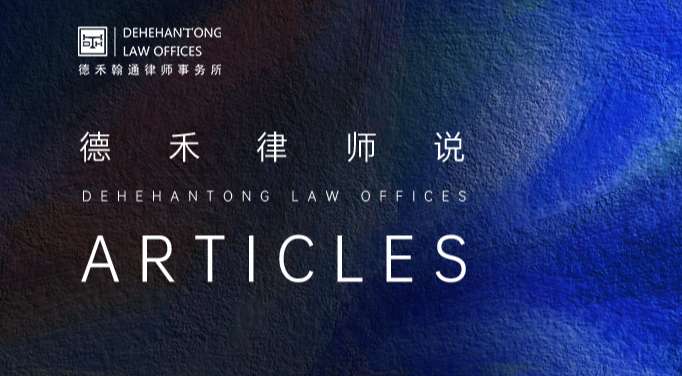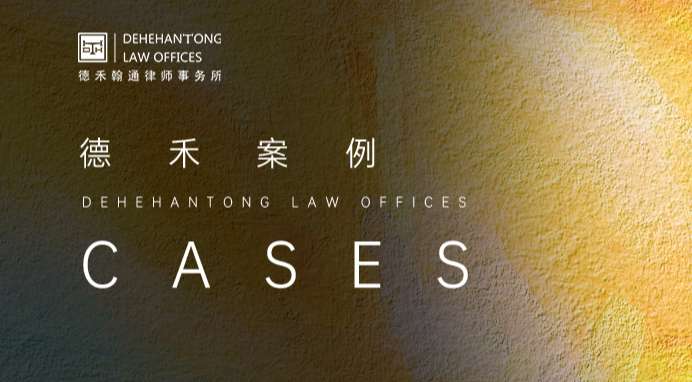Securities Crime - Securities Issuance (Part Three) : Practical Interpretation - Changes in Criminal Risks and Sentencing Trends
With the in-depth advancement of the comprehensive registration-based reform in China's capital market, the market ecology is undergoing fundamental changes. The core of the reform lies in rationalizing the relationship between the government and the market, giving more choice to the market. This inevitably requires the simultaneous relaxation of front-end control and the strengthening of back-end supervision. More inclusive conditions for issuance and listing mean that mid - and post-event supervision must be stricter, and securities criminal activities must be severely cracked down on with a zero-tolerance attitude, so as to ensure the smooth operation of the market-oriented reform of the registration system. It is precisely against this backdrop that a profound transformation surrounding the criminal rule of law in the capital market has quietly begun.
First, the intensity of punishment has been increased and regulatory law enforcement has become stricter.
The Criminal Law Amendment (XI) came into effect on March 1, 2021, firing the first shot of this reform and marking a major reconstruction of the criminal regulation system in the capital market. This amendment significantly enhances the criminal penalties for four types of securities and futures crimes, unprecedentedly intensifies the criminal crackdown on fraudulent issuance and information disclosure fraud, and for the first time raises the upper limit of the sentence for fraudulent issuance to 15 years and greatly increases the amount of fines, truly demonstrating the regulatory determination to enforce severe measures to rectify chaos.
This upgrade of criminal legislation has laid a solid legal foundation for subsequent regulatory and law enforcement practices. On April 12, 2024, The State Council issued the "Several Opinions on Strengthening Supervision, Preventing Risks and Promoting High-Quality Development of the Capital Market" (the "New Nine Policies"), further emphasizing the joint punishment for securities and futures criminal and illegal acts at the policy level. The "New Nine Policies" not only solidify the obligation of issuers as the primary responsible parties for information disclosure, highlight the bottom-line requirements for the authenticity of financial data, and strictly prohibit serious illegal acts such as financial fraud and fraudulent issuance, but also significantly strengthen the gatekeeper responsibilities of intermediary institutions, and set higher professional standards for sponsors, accounting firms, law firms, etc. It is emphasized that they should be diligent and responsible, conduct substantive reviews, and prevent the practice of only recommending without guaranteeing and the idle operation of procedures.
The subsequent judicial and law enforcement collaboration has further implemented this strict regulatory signal. On May 17th, the Supreme People's Court, the Ministry of Public Security and the China Securities Regulatory Commission jointly issued the "Opinions on Several Issues Concerning the Handling of Securities and Futures Criminal Cases", clearly stating that all cases should be transferred, those that should be arrested should be arrested, and those that should be prosecuted should be prosecuted, and strictly restricting the application of relative non-prosecution, exemption from punishment and probation. The tightening of this judicial policy means that the number of securities crime cases entering criminal proceedings may rise significantly, market entities are facing more severe risks of criminal accountability, the difficulty of obtaining bail pending trial increases, and the space for lenient punishment is significantly compressed.
On July 15, 2024, the China Securities Regulatory Commission and five other departments jointly issued the "Opinions on Further Improving the Comprehensive Punishment and Prevention Work for Financial Fraud in the Capital Market", which further proposed a systematic punishment and prevention combined plan for the issue of financial fraud. This opinion includes a total of 17 specific measures, emphasizing that fraudulent issuance activities must be severely cracked down on during the securities issuance stage. By strengthening on-site inspections and supervision to prevent those with problems from entering the market, and implementing key supervision over high-risk issuers, a comprehensive and all-round punishment and prevention system should be established.
It can be seen from this that under the background of the comprehensive registration system, an increasingly strict criminal control network characterized by "upgraded criminal legislation - strengthened regulatory policies - coordinated judicial and law enforcement" is taking shape, and it is profoundly reshaping the compliance logic and risk boundaries of the securities issuance market. Based on the in-depth analysis of the relevant legal provisions and defense strategies in the securities issuance stage in this series of articles, this article will further combine the judicial practice in recent years and focus on sorting out the sentencing standards and new trends in criminal penalties for such crimes, with the aim of providing more operational references for the behavioral norms and criminal risk prevention of various market entities.
Second, the application of individual real sentences has been increased, and the upper limit of fines for units has been raised.
(1) The crime of fraudulently issuing securities
The crime of fraudulently issuing securities, as a criminal act that seriously undermines the source integrity of the capital market and distorts the basis of securities pricing, has become the focus of the new round of "zero-tolerance" regulatory storm. In recent years, from the revision of the Criminal Law itself to the implementation of a series of regulatory policies, the constituent elements, disciplinary intensity and judicial practice of this crime have all undergone fundamental changes, putting forward unprecedentedly high requirements for the compliance responsibilities of market entities such as issuers.
From the perspective of the term of imprisonment and the amount of the fine, Article 160 of the Criminal Law of 1997 only stipulates one sentencing tier, that is, those who commit this crime shall be sentenced to fixed-term imprisonment of not more than five years or criminal detention, and shall also or solely be fined not less than one percent but not more than five percent of the amount of illegally raised funds. From the cases we have found, the majority of the sentences are three years or less (including three years).
The revision of the Criminal Law Amendment (XI) to the crime of fraudulently issuing securities constitutes the cornerstone of this round of strict supervision. Its main changes are reflected in:
Significantly increase the upper limit of imprisonment: Raise the original legal provision of "imprisonment of not more than five years or criminal detention" to "imprisonment of not less than five years", and significantly increase the upper limit of the sentence to fifteen years. This adjustment has completely changed the past tendency of lenient punishment for this crime, making it truly a serious economic crime that can be punished severely.
Thoroughly reform the fine system: The previous fine ratio limit of "one percent to five percent of the amount of illegally raised funds" has been abolished and transformed into an unlimited fine system. Judicial authorities can now impose huge fines far exceeding the previous proportion limit based on the specific circumstances of the case, significantly increasing the punitive and economic costs of crimes. At the same time, a new regulation has been added to impose fines on the directly responsible managers and other directly responsible personnel, achieving a "dual penalty system" for natural persons, and individuals also have to bear heavy economic responsibilities.
Expand the coverage of criminal acts: The objects of the crime of fraudulent issuance have been expanded from the original "stocks, corporate and enterprise bonds" to depositary receipts and other securities legally recognized by The State Council, keeping the regulatory scope of this crime in step with the innovation of capital market products and plugging loopholes.
The crime of fraudulently issuing securities is the most severely punished offense among securities-related crimes. Besides the legal adjustment of the statutory penalty, the author has found in the discretion of practical cases that the sentencing for this crime has changed the previous situation where suspended sentences were given priority and fines were used instead of imprisonment in securities-related crimes. Instead, actual penalties have gradually been applied, and at the same time, the penalties for the enterprises themselves have been increased. The intensity of fines has been further increased. Once an enterprise is involved in criminal activities, both the individuals involved and the company will face serious consequences.
(2) Providing false certification documents
The crime of providing major false certification documents
Under the principle of "responsibility upon declaration" in the registration system, the gatekeeper role of intermediary agencies has been elevated to an unprecedented strategic height. The professional opinions it provides serve as a crucial basis for investors' decision-making and also form an important foundation for regulatory authorities to conduct formal reviews. Once lost, it will seriously erode the foundation of market trust. The revision of Article 229 in the Criminal Law Amendment (XI) and the subsequent implementation of a series of regulatory policies mark a fundamental change in the nature of the professional risks of intermediary institutions. It has shifted from being mainly administrative liability in the past to a multiple and high-pressure resonance of administrative, civil and criminal liabilities, as follows:
1. Aggravated punishment for the crime of providing false certification documents (intentional crime)
Increase penalties: Raise the first-tier prison term from "imprisonment of not more than five years or criminal detention" to "imprisonment of not less than five years but not more than ten years", significantly increasing the upper limit of the prison term.
Add aggravating circumstances: It is clearly stipulated that if "simultaneously demanding or illegally accepting property from others" constitutes this crime, the offender shall be sentenced to "fixed-term imprisonment of not less than ten years or life imprisonment and shall also be fined". This lists the rent-seeking behavior of gatekeepers as the most serious target of crackdown, with the maximum penalty being life imprisonment.
The upgrade of fines: The proportional fine system has been abolished and replaced with an unlimited fine. Additionally, fines for "directly responsible personnel" have been newly added, achieving dual economic punishment for both institutions and individuals.
2. The threshold for conviction and responsibility for the crime of "major inaccuracy in issuing certification documents" (negligent crime) have been lowered and clarified.
Lower the threshold for criminalization: The original provision that "serious irresponsibility" resulting in major inaccuracies in the supporting documents and "causing serious consequences" would constitute a crime has been revised to "serious circumstances" allowing for criminalization. This means that it is no longer necessary to cause actual harmful consequences. Serious dereliction of duty itself may constitute a crime, greatly advancing the trigger point of criminal risks.
Increase penalties: Raise the maximum statutory penalty from "three years of fixed-term imprisonment" to "five years of fixed-term imprisonment", and impose a fine concurrently.
In conclusion, under the grand narrative of the comprehensive registration system, harsh laws and severe punishments are not the goal but the means. The ultimate goal is to force all market entities to fulfill their duties and responsibilities through clear and strict legal responsibilities, jointly shaping a healthy ecosystem where issuers disclose information truthfully, intermediary institutions provide professional screening, and regulators severely punish fraud, thereby laying the most solid legal foundation for the high-quality development of China's capital market.
(3) The crime of issuing stocks, futures or corporate bonds without authorization
As the author analyzed in the second article of this series, the greatest risk of this crime lies in its distinction from the crime of illegally absorbing public deposits. This crime itself is a minor crime and is rarely recognized in judicial practice. However, the similar crime of illegally absorbing public deposits is widely applied in practice. With the intensification of the crackdown on securities and futures-related crimes, For some criminal acts, there is actually room to determine this crime instead of simply identifying it as a crime of illegal fundraising. In other words, the criminal risk of this crime does not lie in the charge itself, but in the possibility of sliding into a more serious crime.
If it can be proved that the act of issuing stocks is genuine, it may constitute this crime.
The judgment viewpoint of Case No. 1612 of "Criminal Trial Reference" : "The crime of issuing stocks, company bonds or enterprise bonds without authorization indeed involves the issuance of stocks and bonds. The funds raised have clear purposes and are actually used for the agreed projects. In terms of operation methods, there is no difference from the legal issuance of stocks. Its illegality lies in the fact that the issuance behavior has not been legally approved by the relevant departments." Of course, it remains a question to be discussed whether the substantive or formal requirements for the legal issuance of stocks must be met to satisfy this standard. However, at least for now, the judicial discretion standards have been clarified to a certain extent, and the substantive or formal standards have given a certain space for defense.
2. The repurchase and investment compensation clauses are not directly equivalent to "inducement"
If the repurchase and investment compensation clauses do not necessarily trigger, they cannot be regarded as having the feature of inducement. If the matters promised by the enterprise may be realized and, considering the enterprise's operating conditions, there is a nature of a put option, it is obviously different from the principal and interest guarantee commitment. At present, in judicial practice, the previous one-size-fits-all approach has been abandoned. The nature of the repurchase and investment compensation clauses has been gradually examined and distinguished to a certain extent from the principal and interest guarantee commitment, providing greater space for defense.
In conclusion, the legal supervision during the issuance stage of securities crimes is becoming increasingly strict. Enterprises need to pay attention to the potential serious blow that the hidden criminal risks in the issuance stage may cause to the enterprise in the future. However, at the same time, the boundary between this crime and that crime is gradually becoming clear, leaving more space for lawyers to prevent and control risks and defend. Enterprises have the opportunity to effectively control risks in the early stage of case development. Ensure the compliant operation of the listing after issuance.















